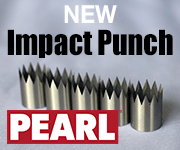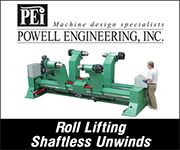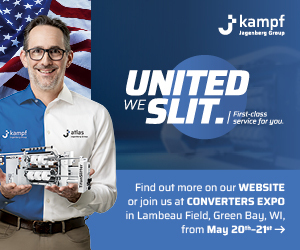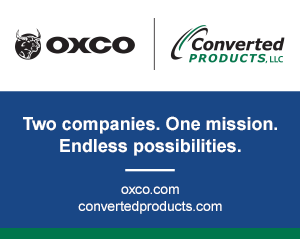Box Plant Rises from the Ashes to New Heights
- Published: June 01, 2000, By Edward Boyle, Contributing Editor
Imagine showing up at your plant one morning--and it's not there. A fire has decimated your entire operation. Your equipment, inventory, and files are now worthless, unrecognized heaps of carbonized ash. The roof of the main factory has collapsed and the walls fell in. What wasn't twisted, charred, or rendered useless by the flames was irrevocably damaged by smoke and water.
"It was hard to imagine how things could have been worse," Mark Sonderen, president of Sonderen Packaging, Spokane, WA, recalls of the June 1998 fire. Yet, they very well could have been, had Sonderen and his 46 employees not acted fast to save the business. Help from dedicated personnel, responsive suppliers, and even some sympathetic competitors allowed Sonderen Packaging to continue filling customer orders in a timely fashion. "Eight other factories were used," says Sonderen. "One allowed a group of our employees to use their equipment on Friday, Saturday, and Sunday. Jobs were distributed to other plants, depending on product fit and availability of time."
The plant may have gone up in smoke, but the 37-year-old business survived. Quips Sonderen, "We were able to build a box plant in the time it normally takes to build a box."
Putting It Back Together
Sonderen was fortunate that firewalls in the 85,000-sq-ft facility left parts of the business somewhat intact. The heart of its operation, which housed converting equipment and administrative offices, was destroyed, but two other sections used for warehousing raw materials and finished goods remained structurally sound, and a new addition that was under construction at the time of the fire suffered only smoke and water damage. The company decided that is where it would house the replacement equipment--a new press, die-cutter, and folder/gluer--upon its delivery.
Using a rental trailer for temporary offices, Sonderen employees cataloged their losses and put together a recovery plan. The warehouse extension was completed in just four weeks (instead of the scheduled eight) and prepared for installation of the replacement equipment. In the meantime, Mark Sonderen was able to arrange for his employees to work during the weekends in some nearby plants. Within three days of the fire, Sonderen Packaging was again filling customer orders.
With an insurance check in hand, Sonderen was free to re-equip his operation with state-of-the-art converting machinery from the suppliers of his choosing. He ultimately decided to replace the equipment that was destroyed with virtually the same make and model presses, die-cutters, and folder/gluers that had made his company so successful in the first place. That commitment to his long-time suppliers was rewarded, in turn, as replacement equipment was delivered in seemingly record time.
International Paper Box Machine customized a new Royal 40 folder/gluer replacement machine, and the first of Sonderen's Bobst 102-E and 142-E cutter/creasers was in place less then six weeks after the fire, followed a month later by the second. When the first of two MAN Roland Model 600 and 900 six-color printer/ coaters arrived less than four months after the fire, the plant was fully operational once again. Inks are from INX Internationoal Ink Co. Solid bleached sulfate is from Potlatch, and recycled paper is from Jefferson-Smurfit Stone.
Sonderen notes that his ongoing business plan had called for the company to expand to a larger sheeted press format (from 28 x 40 in. to 40 x 56 in.) within five years. The fire changed all that. In addition to increased size and volume capabilities, the new equipment offered some noticeable advancements over the earlier model presses.
"They run smoother and faster and are a little more user-friendly than their predecessors," says Sonderen, "and it takes fewer tools to work on the machines. They're just small improvements, but they are effective."
Doing It Quickly, Doing It Right
Today, Sonderen Packaging continues to serve the same candy, tea, and food industries of the Pacific Northwest that helped launch the business in the basement of a print shop in 1963. The operation manufactures primarily high-end customized boxes, specializing in runs of small to medium lengths requiring quick turnaround times.
"The number one issue in boxmaking today is speed," says Sonderen. "In the past five years, most of our customers have focused on inventory control as a primary cost-cutter. Today, our challenge as a boxmaker is to provide just-in-time service without sacrificing anything on quality."
Because of the dynamic nature of its boxmaking operations, Sonderen has focused on equipment that delivers both speed and versatility. For example, just a few years before the fire, Sonderen installed an International Paper Box Machine Royal 40 folder/gluer with an MK2 backfold system to speed up changeover and production times.
The then-new equipment was an instant hit at Sonderen--and its replacement model was even more popular.
"The type of accounts we've built on require a lot of changeovers," notes Sonderen. "That's really what we do best, multiple items and short runs, but we also produce some longer runs. The smoothness of the new equipment and some other subtle changes helped improve the changeover times and speeds."
According to machine operator Roy Johnson, "Changing from an auto-lock bottom or straightline to a four-corner tray averaged about two hours before we had the Royal 40 and MK2. Now we can change over in 30 minutes, which means two to three hours of time saved in a plant that goes through four to six changeovers each day."
Johnson notes that the design for International's Royal 40 allows quick setups and high-speed production, regardless of the style of box being run. Says Johnson, "It's length and virtually toll-free changeover adjustments are what gives it the flexibility we require."
He says the International folder/gluers are capable of producing many sizes and styles, including four- and six-corner beers; automatic bottom; hexagon/octagon shapes; sealed end; book styles; CD folders; and tuck ends.
Johnson adds, "When we do have a long run come in, the machine runs quietly and smoothly, at more than 25,000 cartons per hour on four-corner trays and auto-lock bottom, and as fast as we can pick on straight line runs."
Lessons Well Learned
Sonderen Packaging continues to improve its capabilities and recently added a Kluge hot foil stamper for increased graphic appeal. In a phrase that might sum up both his business philosophy and his response to the fire, Sonderen notes, "You've just got to keep moving forward."
Sonderen says he's learned many valuable lessons from the disaster, especially the importance of solid business and personal relationships. "You don't survive a disaster like this without good relationships. Good relationships with your suppliers, customers, employees, and competitors are key to your survival. The support was overwhelming."
He also points out that many plant owners can learn from him when it comes to safety. Included in his advice: Purchase fire-proof safes; update sprinkler and smoke detection systems; make copies of film records for repeat jobs and keep them off-site; regularly back up all computer files and keep copies off-site; and get MAI (Member of Appraisal Institute) appraisal of equipment and update it every year for insurance purposes.
Sonderen relates that the boxmakers he partnered with during the ordeal heeded his advice on protecting their own businesses from fire. Perhaps their generosity toward Sonderen will someday be repaid through the good advice he offered.
And, with the rebuilding behind him, a stable of more efficient converting equipment in his pressroom, a reaffirmed confidence in his employees, and a new-found faith in his "competitors," Sonderen suggests that the tragedy "worked out real well in the long run."
But, he adds with a chuckle, "we decided that if something like this happens again, we're just taking the check. You should only go through this once." Fortunately for Sonderen, the company is still around to tell the tale.
Supplier Information
International Paper Box Machine, Nashua, NH; 603/889-6651
Bobst Group Inc., Roseland, NJ; 973/226-8000; bobstgroup.com
MAN Roland Inc., Westmont, IL; 630/920-2000; manroland.com
INX International Ink Co., Milwaukee, WI; 414/438-4383; 800/545-4469; inxinternational.com
Potlatch, Walnut Creek, CA; 510/947-5500
Jefferson Smurfit Stone, Santa Clara, CA; 408/496-5118 smurfit-stone.com
Kluge, St. Croix Falls, WI; 715/483-3265












